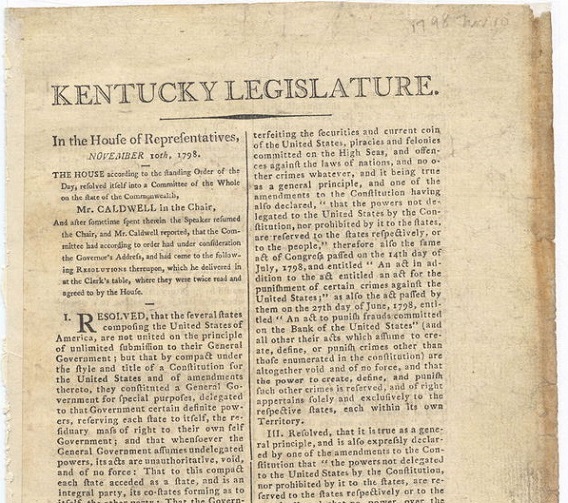
Nullification, also known as State interposition, is controversial because it challenges the Supreme Court’s monopoly on constitutional interpretation. The argument behind nullification is that the States—as parties to the compact that created the federal government—have a right to interpret the Constitution and veto acts where the federal government exceeds its delegated power. Genuine nullification involves a State’s declaration of unconstitutionality and obstruction of that federal law within its territory.
The majority of historians and legal scholars today dismiss nullification, but they rarely engage the arguments in support of the practice. Here are 10 of their most common objections to nullification, followed by a refutation.
(1) Nullification does not work.
More @ The Abbeville Institute

No comments:
Post a Comment